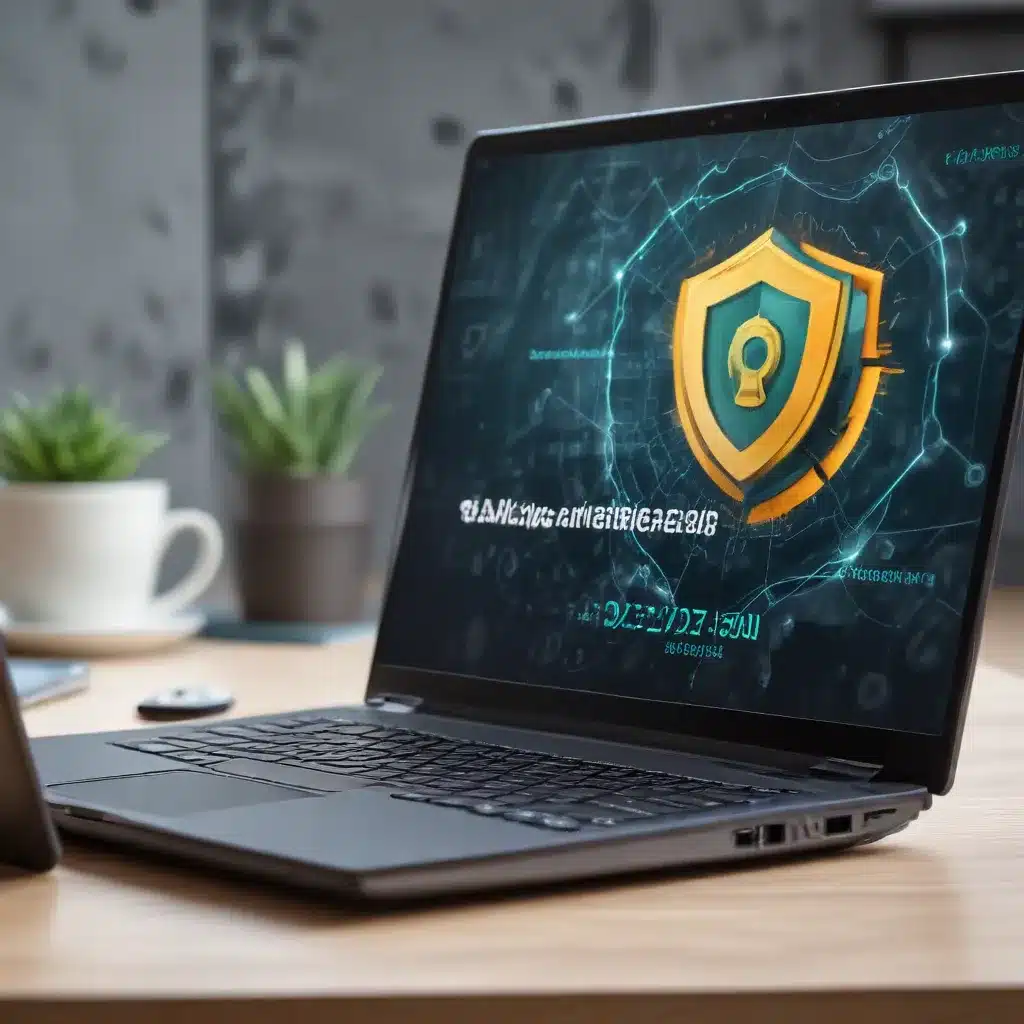
In today’s digital landscape, our laptops have become the epicenter of our personal and professional lives. From storing sensitive data to facilitating online transactions, these devices hold a wealth of information that must be protected. As seasoned IT professionals, we understand the critical importance of robust antivirus and malware protection to safeguard your laptop and its contents.
Understanding the Threat Landscape
The internet can be a treacherous environment, teeming with malicious actors and sophisticated cyber threats. Viruses, spyware, ransomware, and other forms of malware can infiltrate your laptop, wreaking havoc on your data, device performance, and online security. These threats can manifest in various ways, from hijacking your personal information to holding your files hostage.
Viruses: Malicious programs designed to replicate and spread, often causing system crashes, data loss, and performance issues.
Spyware: Software that collects and transmits your personal data, such as browsing history, login credentials, and financial information, without your knowledge or consent.
Ransomware: A type of malware that encrypts your files, holding them for ransom and demanding payment in exchange for their release.
Phishing Attacks: Deceptive attempts to trick you into revealing sensitive information, such as login credentials or financial details, often through seemingly legitimate emails or websites.
Implementing Robust Antivirus and Malware Protection
Protecting your laptop from these threats requires a multi-layered approach, combining the use of reliable antivirus software, regular system updates, and vigilant security practices. Let’s explore the key components of an effective laptop security strategy:
Antivirus Software
Antivirus software is the cornerstone of your laptop’s defense against malware. Look for a reputable solution that offers real-time threat detection, comprehensive scanning, and automatic updates to stay ahead of the latest threats. Some of the top antivirus programs on the market include Webroot SecureAnywhere, Bitdefender, and Malwarebytes.
When selecting an antivirus program, consider the following features:
- Real-time Scanning: Continuously monitors your system for any suspicious activity or incoming threats.
- Automatic Updates: Ensures your antivirus definitions are kept up-to-date, providing protection against the latest malware.
- Comprehensive Scanning: Thoroughly checks your entire system, including email, web browsing, and downloaded files, for potential threats.
- Ransomware Protection: Safeguards your files from encryption by ransomware attacks.
- Firewall Integration: Blocks unauthorized access to your laptop, preventing hackers from exploiting vulnerabilities.
It’s important to keep your antivirus software up-to-date and perform regular full-system scans to maintain optimal protection.
Operating System and Software Updates
Cybercriminals often exploit vulnerabilities in outdated software to gain access to your laptop. That’s why it’s crucial to keep your operating system, web browser, and other essential applications up-to-date with the latest security patches and updates.
Many modern operating systems, such as Windows and macOS, offer automatic update features that can streamline this process. Enable these options to ensure your laptop is always running the most secure version of the software.
Secure Browsing and Email Practices
Your browsing and email habits can significantly impact the security of your laptop. Follow these best practices to minimize your exposure to online threats:
- Be cautious of suspicious links and attachments: Refrain from clicking on links or opening attachments from unknown or untrusted sources, as they may contain malware.
- Use a secure and private web browser: Consider using a privacy-focused browser like Mozilla Firefox or Brave to reduce the risk of online tracking and malware infection.
- Implement two-factor authentication: Enhance the security of your online accounts by enabling two-factor authentication, which requires an additional step of verification beyond just a password.
- Be cautious of public Wi-Fi networks: Avoid conducting sensitive activities, such as online banking or accessing confidential information, on public Wi-Fi networks, as they may be susceptible to eavesdropping or man-in-the-middle attacks.
By adopting these secure browsing and email practices, you can significantly reduce the likelihood of your laptop becoming compromised.
Safeguarding Your Data in the Cloud
In today’s digital age, many of us rely on cloud-based storage solutions, such as Microsoft OneDrive, to store and access our files from anywhere. While these services offer convenience and accessibility, it’s essential to understand the security measures in place to protect your data.
Microsoft OneDrive, for example, employs robust security features to safeguard your files, including:
- Encryption: Your data is encrypted both in transit and at rest, ensuring that even if unauthorized access is gained, the information remains unreadable.
- Two-factor Authentication: OneDrive supports two-factor authentication, adding an extra layer of security to your account and preventing unauthorized access.
- Version History and Recycle Bin: OneDrive keeps track of previous versions of your files, allowing you to easily restore deleted or corrupted data.
- Personal Vault: A secure, encrypted area within OneDrive that requires additional authentication to access, providing an extra layer of protection for your most sensitive files.
By leveraging the security features offered by cloud storage providers, you can enhance the protection of your data while enjoying the benefits of ubiquitous access and collaborative capabilities.
Staying Vigilant and Informed
Cybersecurity is an ongoing battle, and maintaining the security of your laptop requires constant vigilance and adaptability. Stay informed about the latest threats, security best practices, and industry trends by regularly visiting IT-focused resources, such as the IT Fix blog.
Remember, the key to safeguarding your laptop and its contents lies in a comprehensive approach that combines robust antivirus and malware protection, proactive software updates, secure browsing and email habits, and the strategic use of cloud-based storage solutions. By implementing these measures, you can significantly reduce the risk of your laptop falling victim to the ever-evolving world of cyber threats.
Conclusion
Your laptop is a gateway to your personal and professional life, and protecting it should be a top priority. By leveraging the power of antivirus software, maintaining system updates, and adopting secure online practices, you can fortify your laptop’s defenses and ensure the safety of your valuable data. Stay vigilant, stay informed, and take the necessary steps to safeguard your device against the relentless onslaught of cyber threats.












